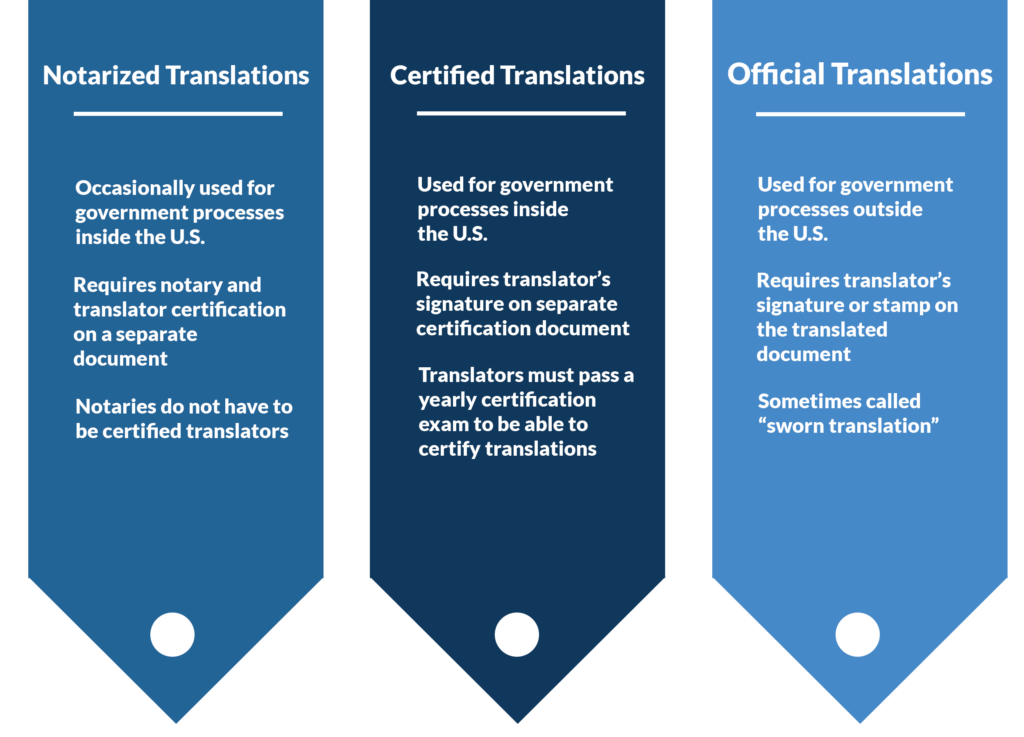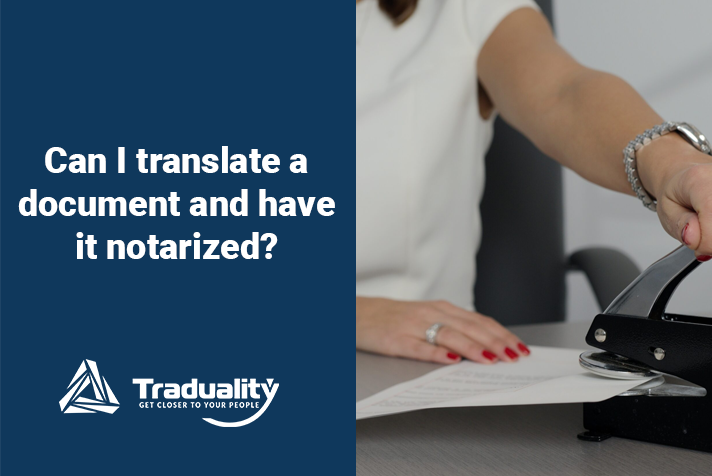Navigating the world of translation can be complex, especially when legalities are involved. A common question is, “Can I translate a document and have it notarized?” This article will delve into the intricacies of notarized translation, exploring various aspects and answering key questions.
What Does Officially Notarized Translation Mean?
First, you should know the meaning of a notarized translation: a notarized translation refers to a translation that a notary public has authenticated. This process adds a legal dimension to the translation, ensuring that governmental and legal authorities recognize it.
Why Is Notarized Translation Important?
Notarized translations are essential because they are often required for official documents such as legal agreements, immigration papers, and educational certificates. They assure authenticity, making them acceptable in legal proceedings. Not every document needs a certified or notarized translation, though. Creative projects, like those for marketing translation, don’t require certification or notarization.
What Is the Difference Between a Certified Translation and Notarized Translation?
Understanding the difference between certified and notarized translations is crucial:

- Certified Translation: A certified translation includes a statement from the translator or agency attesting to the accuracy of the translation.
- Notarized Translation: A notarized translation goes a step further, with a notary public verifying the translator’s identity and the accuracy of the translation.
When to Choose Certified or Notarized Translation
The choice between certified and notarized translation depends on the specific requirements of the document. Legal or governmental authorities may specify the need for a notarized translation.
Can a Notary Translate a Document?
A notary public’s role is to authenticate the process, not to translate the document. They verify the translator’s identity and the accuracy of the translation but do not perform the translation themselves.
Role of a Notary in Translation
The notary’s role adds legal weight to the translation, ensuring that legal and governmental bodies recognize it. They act as a witness to the translation process, adding credibility.
How Do You Make a Notarized Translation?
Creating a notarized translation involves several stages:
- Selecting a Translator: Choose a professional translator or agency with expertise in the required language and field.
- Translating the Document: The document is translated with precision and adherence to legal standards.
- Certification: The translator or agency provides a certificate of accuracy.
- Notarization: A notary public verifies the process, adding legal validity.
Tips for Successful Notarized Translation
- Understand the Requirements: Know the specific needs of the document, such as whether notarization is required.
- Choose Qualified Professionals: Select translators and notaries with relevant experience and credentials.
- Communicate Clearly: Ensure that all parties understand the requirements and expectations.
Does a Certified Translation Need to Be Notarized?
Not all certified translations require notarization. The need for notarization depends on the specific document and jurisdiction. It’s essential to understand the requirements beforehand.
Understanding Legal Requirements
Is it possible for a notary to translate a document? Well, different jurisdictions may have varying rules regarding notarization. Consulting with legal experts or authorities can clarify the need for a notarized translation.
When Is a Notary Permitted to Notarize a Document in a Foreign Language?
A notary public can notarize a document in a foreign language, even if they do not understand the language. Their role is to verify the translator’s identity and the accuracy of the translation process.
Ethical Considerations for Notaries
Notaries must adhere to ethical standards, ensuring they act impartially and follow legal guidelines. They must verify the translator’s identity and the authenticity of the process without engaging in the translation themselves.
How Can I Translate a Document Legally?
Legal translation involves adhering to legal standards and requirements. Certified and notarized translations are considered legal translations.
Considerations for Legal Translation
- Work with Professionals: Choose translators with legal expertise.
- Understand the Law: Know the legal requirements for the specific document and jurisdiction.
- Ensure Accuracy: Accuracy is paramount in legal translation, as errors can have legal consequences.
Notarized Translation Services
Professional translation agencies and individual translators offer notarized translation services. They specialize in providing translations that meet legal standards.
Choosing the Right Service
- Verify Credentials: Ensure that the service works with certified translators and notaries.
- Understand the Process: Familiarize yourself with the submission, translation, and notarization process.
- Check Reviews: Look for positive reviews and testimonials to gauge the quality of the service.
Notarized translation online offers a convenient solution for obtaining legally recognized translations. By understanding the nuances of notarized translation, working with reputable professionals, and leveraging online platforms, you can confidently navigate this complex field.
Notarized translation online provides a pathway to ensure accuracy, authenticity, and legal compliance, whether for personal, legal, or business purposes. Consider exploring notarized translation services to meet your translation needs with ease, assurance, and legal validity.
Traduality’s Expert Service is Here for You
If you’d like to get started on a notarized translation project, check out our resources for official, certified, and notarized translations. Traduality has everything you need to succeed; create your first project today and find vetted translators, or book a meeting with us to learn more about your specific needs.
Updated 2/21/2024.





0 Comments